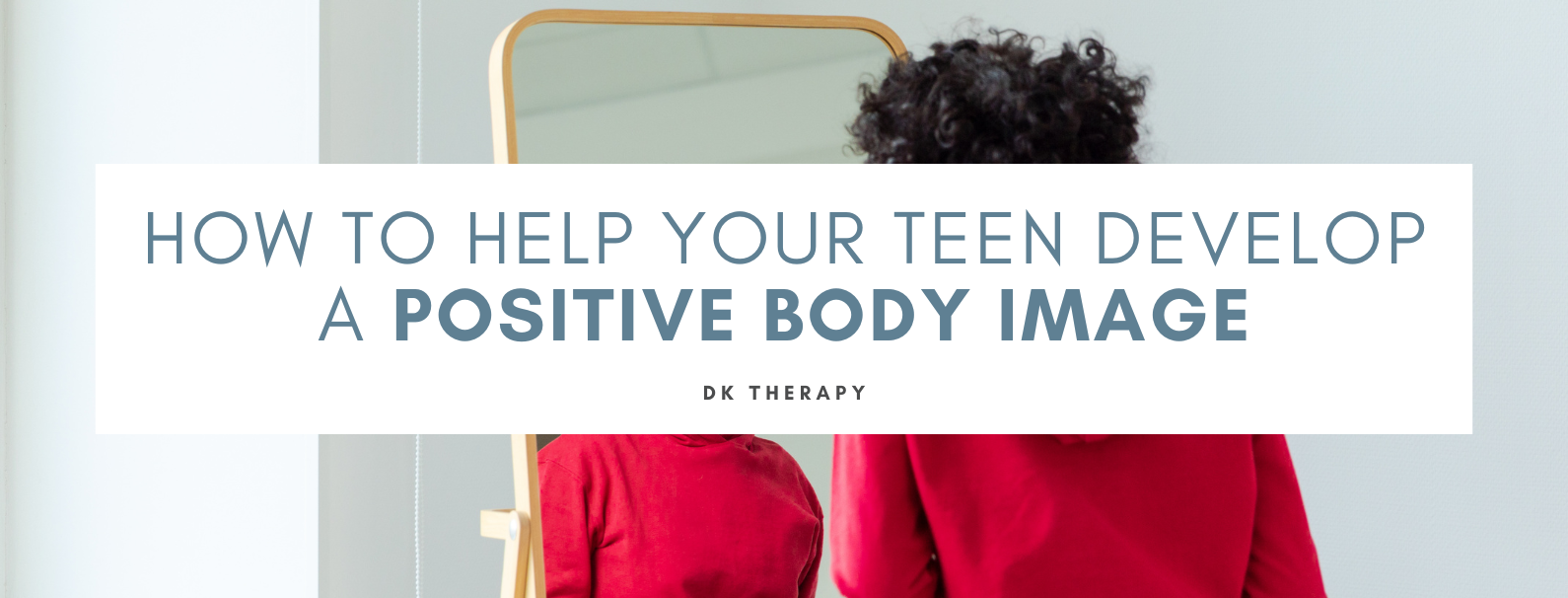
The teenage years can be a challenging time, especially when it comes to body image. Young people are constantly bombarded with pressure and social media comparisons that negatively shape the way they see themselves. As a parent or caregiver, you play a key role in helping your teen build a healthy and positive relationship with their body.
These actionable steps can help you guide and support the young people in your life to develop a healthy body image:
 Model Body Positivity, Lead by Example
Model Body Positivity, Lead by Example
Teens often learn by observing their parents or guardians. When you talk about your own body or someone else’s, focus on the positive. Don’t criticize yourself or others for weight, appearance, or perceived physical health. Instead, try to mention when your physical condition benefits you, such as healing from an illness, allowing you to run, or engaging in a fun hobby.
Encourage Healthy Habits for the Right Reasons
Promote physical activity and balanced nutrition as ways to feel strong, energetic, and mentally clear. While wanting to look good is understandable, it should be secondary to maintaining one’s health. Help your teen take part in activities they will enjoy, and encourage them to prepare nutritious meals with you to supplement their healthy lifestyle.
When the focus is on wellness rather than aesthetics, your teen is more likely to develop a positive connection with their body.
Limit Negative Media Influences
Despite what we see on the internet, none of us are perfect. Photoshop, makeup, cosmetic surgery, and intense health regimens can mask flaws, but they’re still present. And that’s okay, in fact, it should be embraced. Physical beauty does not determine a person’s worth, as even the most beautiful people have to face the hands of time. So, rather than dwelling on unattainable standards, encourage your teen to follow accounts that celebrate diversity, authenticity, and self-love.
Celebrate Non-Physical Achievements
There is absolutely nothing wrong with taking pride in one’s appearance, but celebrating your teen’s talents and accomplishments should take priority over more aesthetic efforts.
Whether they excel in academics, sports, music, or community service, acknowledging their hard work reminds them that what they contribute to the world does not have to relate to how they look.
Address Negative Self-Talk
If your teen frequently criticizes their appearance, gently challenge those thoughts. Remind them that if they would not say such a thing to their friend, they should not say it about themselves. Instead, if they have a problem with some element of their appearance, encourage them to explore it as they would if they were helping someone they love through the same challenge.
Over time, this practice can reshape their inner dialogue.
Know When to Seek Professional Help
If your teen’s body image struggles seem severe, consider reaching out to a therapist. Warning signs of a more serious issue might include drastic changes in eating habits, excessive exercise, withdrawal from social activities, or ongoing negative self-talk. Professional support can provide your teen with the tools they need to make sense of and reshape their feelings.
Foster Gratitude for the Body’s Functionality
While laying on guilt is not helpful, sometimes perspective helps. Encourage your teen to think about what their body allows them to do. Sometimes, that list might be shorter than someone else’s but it’s going to be a lot longer than another person’s. Inspiring your child to be grateful for their current well-being is an effective way to help them see their bodies functionally rather than focusing on how they look, which can help improve body image.
Helping your teen develop a positive body image is a long process that requires patience and consistency. With your support, though, your teen can learn to appreciate their body for its uniqueness and capabilities.
If you’re struggling and you’d like to begin therapy, reach out to DK Therapy at your convenience and schedule an appointment with our office.




